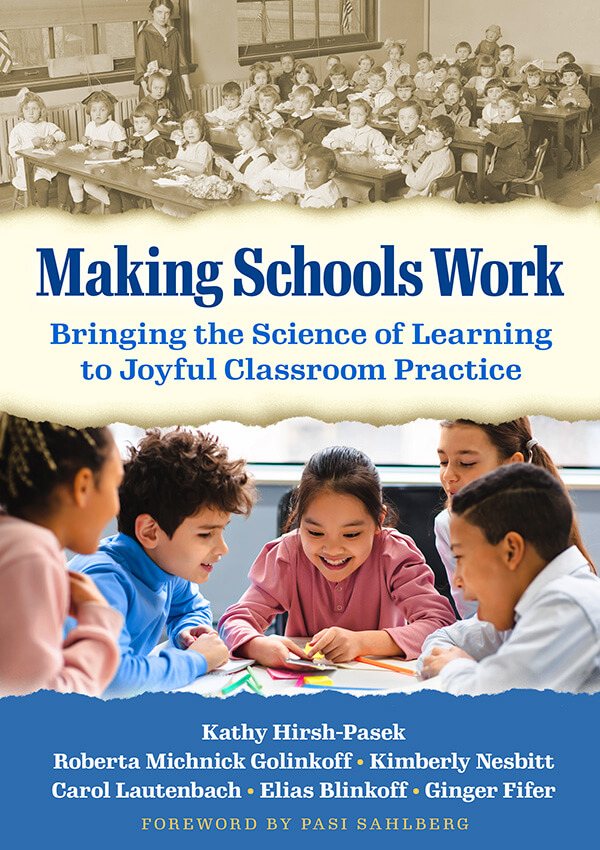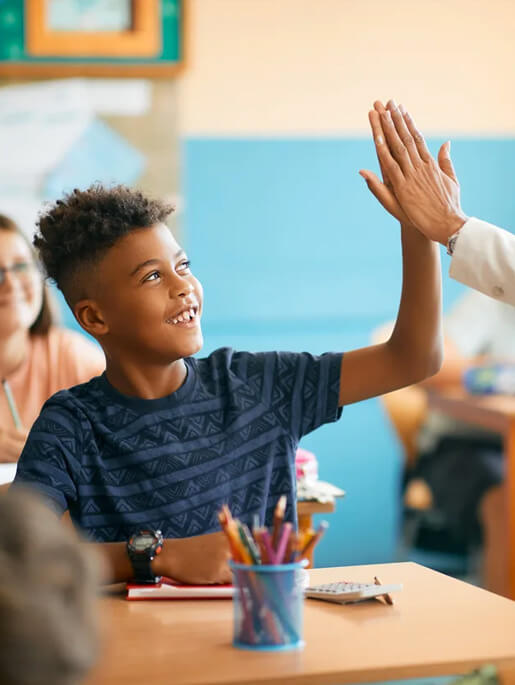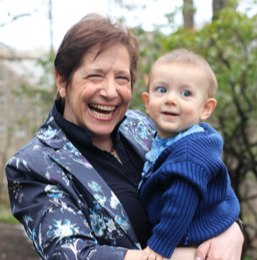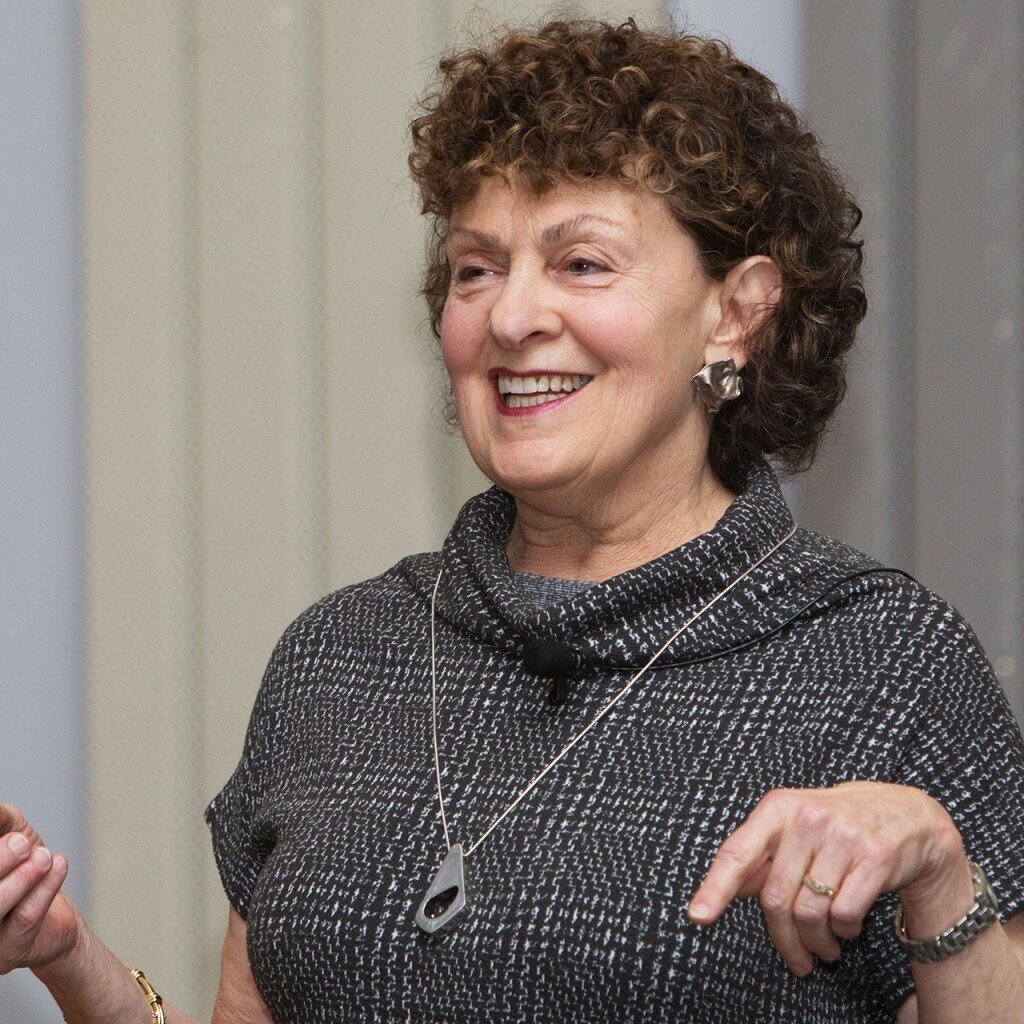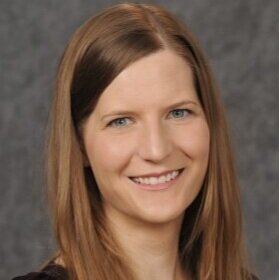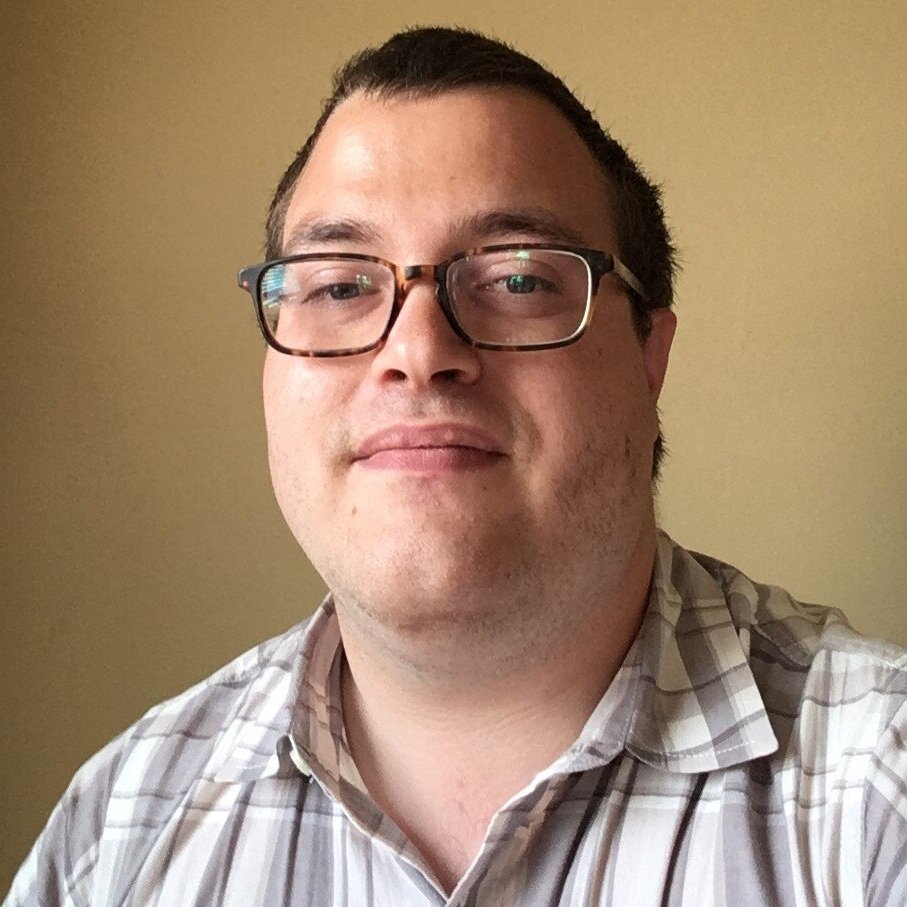Making Schools Work
Bringing the Science of Learning to Joyful Classroom Practice
By Kathy Hirsh-Pasek, Roberta Michnick Golinkoff, Kimberly Nesbitt, Carol Jasperse Lautenbach, Elias Blinkoff, and Ginger Fifer
This is a book we’ve been waiting for! Making Schools Work transports the science of how children learn directly into classroom practice. This accessible, culturally flexible, and impactful book reimagines education for our time, showing how we can empower teachers and prepare children for a life of learning in this 21st-century global world.”
Co-Construct & Reimagine
Optimal Education
If we teach in the way that human brains learn, both students and their teachers will thrive! This book aligns evidence from the learning sciences on how and what students need to learn with classroom practice (pre-K–12). It demonstrates, with hands-on examples, how a change in educational mindset (rather than in curriculum) can improve student outcomes on both standardized tests and a breadth of 21st century skills. Written collectively by classroom teachers, administrators, parents, and learning scientists, this book shows readers how to co-construct and reimagine an optimal educational system. Making Schools Work offers three case studies of schools, including a statewide system, that are all implementing a 6 Cs approach to learning focused on collaboration, communication, content, critical thinking, creative innovation, and confidence. The text documents the ever-evolving implementation process, as well as outcomes and the ongoing work of stakeholders within the district. Readers can use this resource to create an education for all children that is culturally responsive, inclusive, effective, and fun.
Book Features:
Helps educators teach in the way that human minds learn.
Jointly written in accessible language by teachers, administrators, parents, and learning scientists.
Offers hands-on ways to reimagine classrooms without investing in new curricula.
Puts teachers in the driver’s seat, reminding us why we teach.
Provides culturally responsive, inclusive, effective, and fun strategies.
“In Making Schools Work, scientists, teachers, and administrators bring deeper learning to life. Inclusive and culturally responsive, this book takes big ideas like 21st-century skills and shows what they look like in practice. A critical guide for those interested in understanding how to transform our industrial-era structures into next-generation schools and systems that bring passion, purpose, play, and deep learning for students and adults.”
– Jal Mehta, professor, Harvard University
More Praise…
The 6 Cs are both common sense and utterly revolutionary. This authoritative guide not only synthesizes the modern science of learning and motivation but also shows how it can be put into practice now. A must-read for any educator who has wondered whether there is a better way to make schools work.”
Making Schools Work shows how to apply the science of learning to prepare young people to navigate uncertainty, shape meaningful careers, and solve the increasingly complex challenges facing our planet and society. It is a wonderful resource for educators looking for guidance and examples about developing students who can shape a better world for themselves and all of us.”
For too many students in too many schools, the learning experience is broken. This book can help fix it. A team of experts has produced an evidence-based, actionable, and timely guide to rethinking the design of classrooms and reigniting the joy of discovery.”
Yes, schools can be more rigorous, more equitable, and more fun at the same time. This joyful, engaging, and practical manual is just what educators need to transform schools and young people’s lives for the better.”
The authors connect the dots between a remarkably broad and interesting array of studies and bring to life vivid concrete examples of real classrooms. Making Schools Work shows what can happen when children like what they are learning and teachers know what they are doing. This book provides a blueprint for anyone who wants their classroom to flourish.”
The authors of Making Schools Work have put together an invaluable guide to supporting rich, meaningful, playful learning in our children. Teachers, administrators, and everyone else who is invested in students’ emotional well-being and intellectual development will find much to feast on in this deeply researched and beautifully written book.”
In Making Schools Work, scientists, teachers, and administrators bring deeper learning to life. Inclusive and culturally responsive, this book takes big ideas like 21st-century skills and shows what they look like in practice. A critical guide for those interested in understanding how to transform our industrial-era structures into next-generation schools and systems that bring passion, purpose, play, and deep learning for students and adults.”
This is exactly the book we need right now (actually, we needed it years ago). Our models of schooling are simply not up to equipping students for the tasks of the 21st century. The authors make the case for schooling that is relevant, active, and aligned to what we know about the development of children and youth. The team presents what this model looks like in real classrooms in which students are fully engaged, their talents and interests recognized and developed, and their teachers energized and valued. This is truly a must-read for every educator, policymaker, and school board member.”
Grounded in scientific evidence that supports joyful learning, this book provides practical guidance for educators seeking to reimagine schools and classrooms. The authors sketch an inspirational vision of teaching and learning and then show us how to make the vision a reality through vivid examples and case studies. Making Schools Work provides hope that we can catalyze this historic moment to create schools designed to help young people learn and thrive.”
Educational policy for the next decades will require rethinking ‘how’ children learn and ‘what’ they need to learn to develop the breadth of skills needed for success. By recognizing that this will require a systemic approach that involves both parents and community, Making Schools Work offers one blueprint for the future of education in and out of school. Making Schools Work is an accessible and evidence-based must-read for those in global education policy and implementation.”
